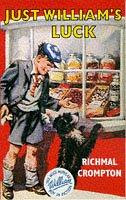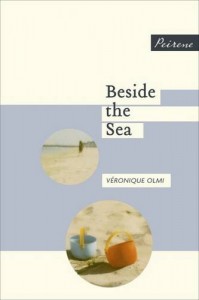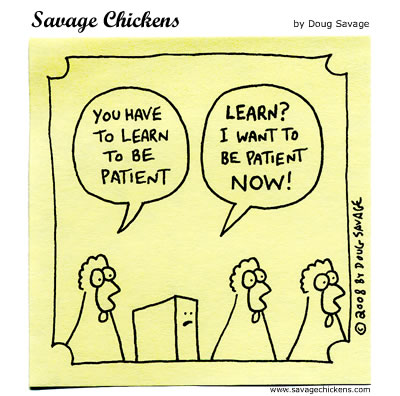And The Land Lay Still
by James Robertson
When
reviewing Catherine O'Flynn's new novel I mentioned the criticism that has occasionally been levelled at British authors for having too narrow a vision, too parochial an ambition when writing fiction. I mentioned it not because I agree with it or even because there is any real validity in the argument in the first place but because I do sometimes wonder who is writing the big books, those that will last into the future. This doesn't always equate to size but there's no doubting that when a book is handed over by the postman with an expression of both pain and relief, it has an air of importance about it. Words in the press release like
epic and
panoramic only add to the mix and a comparison to Don DeLillo's Underworld lead me to make a more direct comparison. James Robertson's novel 'aint small. 60 years of history covering 670 pages, charting a period of great change not only in Scotland, where the book is centred, but across the British Isles and beyond. This isn't a book to whip through quickly, which isn't to say that it's slow or meandering, but with a significant cast of characters often connected through family or circumstance I wished at times that I'd had one of those handy bookmarks that came with my edition of War and Peace with all the characters listed and grouped together by family.
The narrative is rather neatly framed by the curation of a photographic exhibition. Mike Pendreich
struggles to write the essay that will accompany his father Angus's retrospective, a collection of photographs charting 50 years of Scottish life. It isn't just about picking the right pictures, but whether the narrative or structure that Mike imposes on the work is appropriate.
'I don't think he would have approved,' he says. 'He didn't like structures much. And yet, this is the story I see in his work.'
'So it's about you as much as him,' Jean says.
'It's about us all,' Mike says.
And so as he takes a retrospective look, so do we. The first section looks at Mike's political education in the radical Edinburgh of the 1970's ('The decade when the world changed. This is how Mike thinks of the 1970s. Maybe this is because it was in those years that he himself changed, came to know who he was. And maybe that's nonsense, because who ever really knows who they are? And does the world, or anybody, ever stop changing?'), a city where you would have found
...a mysterious book shop that sold titles no other bookshop stocked; pubs stained and rich with the smoke of pipe tobacco and the smell of sweet black sixty-shilling ale, places so narrow men had to shuffle themselves like cards in order to get served; steamy, dripping cafes patronised by noisy crowds of upper-class students, who adored the chipped, the tarnished cutlery, the chewable tea and especially the abuse heaped on them by the coarse-tongued women who served them; sweaty markets and small, incense-hazy shops selling records, posters, Afghan coats, Navajo jewellery, tie-dyed T-shirts, cheesecloth smocks, denim jackets and cowboy boots. In all there was a sense of something about to happen, of things already happening in rooms just out of sight and reach.
Robertson creates a fervent atmosphere of music, political discussion and opinion which spills out from pubs like
Sandy Bell's and into the houses of magnetic figures like Jean Barbour. Like the centre of the spinning wheel she is the still point around which many of this section's characters revolve (whilst also being an important figure for Mike's father). The smokey discussions of disparate political groupings pull in opposing directions, the search for common ground - so important if a Scottish politics is to take off - a constant battle.
It's easy to remember what they stood against: Thatcherism, London rule, the destruction of old industries, the assault on the welfare state, the poll tax. But what were they for? A Scottish parliament, of course. But now they have it, what is it for?...Maybe it's for saying, Look, listen, this is who we are. And maybe that is no insignificant thing, and the purpose of the parliament is to say it again, over and over. What can be more important, politically, than to know who you are, and to say it?
However, this is not a separatist novel. Robertson uses national events, both political and cultural, and shows a Scottish perspective. There may well have been murmurs to the contrary south of the border when Harold Macmillan told the British people they'd 'Never had it so good' but that was nothing compared to the chorus of disapproval that came from Scotland. Markers in the cultural maturity of the nation are a handy way of reflecting the moral reactions of his characters, particularly with regard to sex, with Lady Chatterly's Lover and Psycho two notable examples. This does mean however that the novel can have a slightly clunky journey in places. Well known events act as historical signposts and whilst these might be useful and informative in the early sections of the book they seemed to feel much more clumsy and obvious as the book moved forwards into the era that I was more familiar with. Dialogue all too often was there to impart electoral results, political theory or historical context ("This 1320 club," Croick said."Why 1320 again?" Canterbury asked. Probably he already knew, but maybe not. - and an explanation duly follows). Sometimes he gets it just right though, as when he depicts Scotland's performance at the World Cup in Argentina 1978 (scene of
Archie Gemmill's famous goal against the Netherlands) as 'the surreal rehearsal to the political events of 1979' (a failed devolution referendum).
When Mike talks to Jean Barbour about his father's history she is quick to point out the shifting ground he is attempting to build foundations on - "Stories aren't static Mike...They grow, they shrink, they change with the retelling." This fluidity is well used by Robertson in conjunction with "Our ability to look back on the past, our need or desire to make sense of it" ("both a blessing and a curse") Whilst the first few sections of the book focus on specific stories (Mike's 1970's followed by the fallout of the1950's for two war veterans and then secret service work around the Scottish radicalism of the 70's again) the rest of the book begins to merge the various characters together, just as the photographs of Angus Pendreich bring their various subjects together in a single space (in fact that rather neat framing device might be a little too convenient for some readers in the way it manages to pull the narrative threads together). Running through all this is the almost haunting presence of a tramp-like man, with stones in his pockets, the subject of italicised pages that bookmark each section. His enigmatic presence is mysterious to begin with until we gradually realise who he is and a man who easily passes in and out of people's vision, the kind of man that we all ignore on a daily basis, turns out to have a fascinating personal history, one that gives this huge novel a much-needed humanity.
With all this politics and widescreen narrative it is worth pointing out that the book has a wicked vein of humour running through it too. In fact it is with one of his most overtly political characters that Robertson has the most fun - David Eddlestane 'just an ordinary young man with prospects. And a twist.' That twist isn't so much scandalous as embarrassing - a shoe fetish - but it is wickedly employed to punctuate the career of a fast moving Tory during the ascent of a certain grocer's daughter.
Margaret Thatcher - she was not desirable but she was to be desired; she was not touchable but she could be worshipped; she was not winnable but she might make you hers with a smile. At last his turn came, He was introduced. She took his hand and leaned in towards him to catch his name. the warmth of her smile as they talked, the earnestness with which she listened, the conviction in her eyes as she expressed a view, were almost enough for him. Then as she moved on he cast his own eyes down and saw her legs, her shoes, and his conversion was complete. It was the nearest he would ever come to a religious experience.
From the outset I got the feeling that I was reading an
important book and how various readers react to this may determine how well they get along with it. I'm certainly glad that I persevered through what is an uneven book as Robertson is a writer more than capable of creating great atmospherics and moments of beautiful prose. Each character is absolutely clear as well, no small achievement with such a lot of them, and a couple of them have the power to stay with you after the book. At one point in the novel the man behind the National Gallery of Photography is very proud of the fact that there is no 'Scottish' in its name, 'Why do we always have to be qualifying ourselves like that? The English don't do it. They just
assume.' Perhaps the same pride should be applied to this book, avoiding calling it a Scottish Underworld or even comparing it to that book at all. And The Land Lay Still is the first book, that this reader has come across, that attempts to look at such an important period of history for Scotland, making it a book sure to garner attention up there and worthy of note to those south of the border and elsewhere too.
Read more...
















